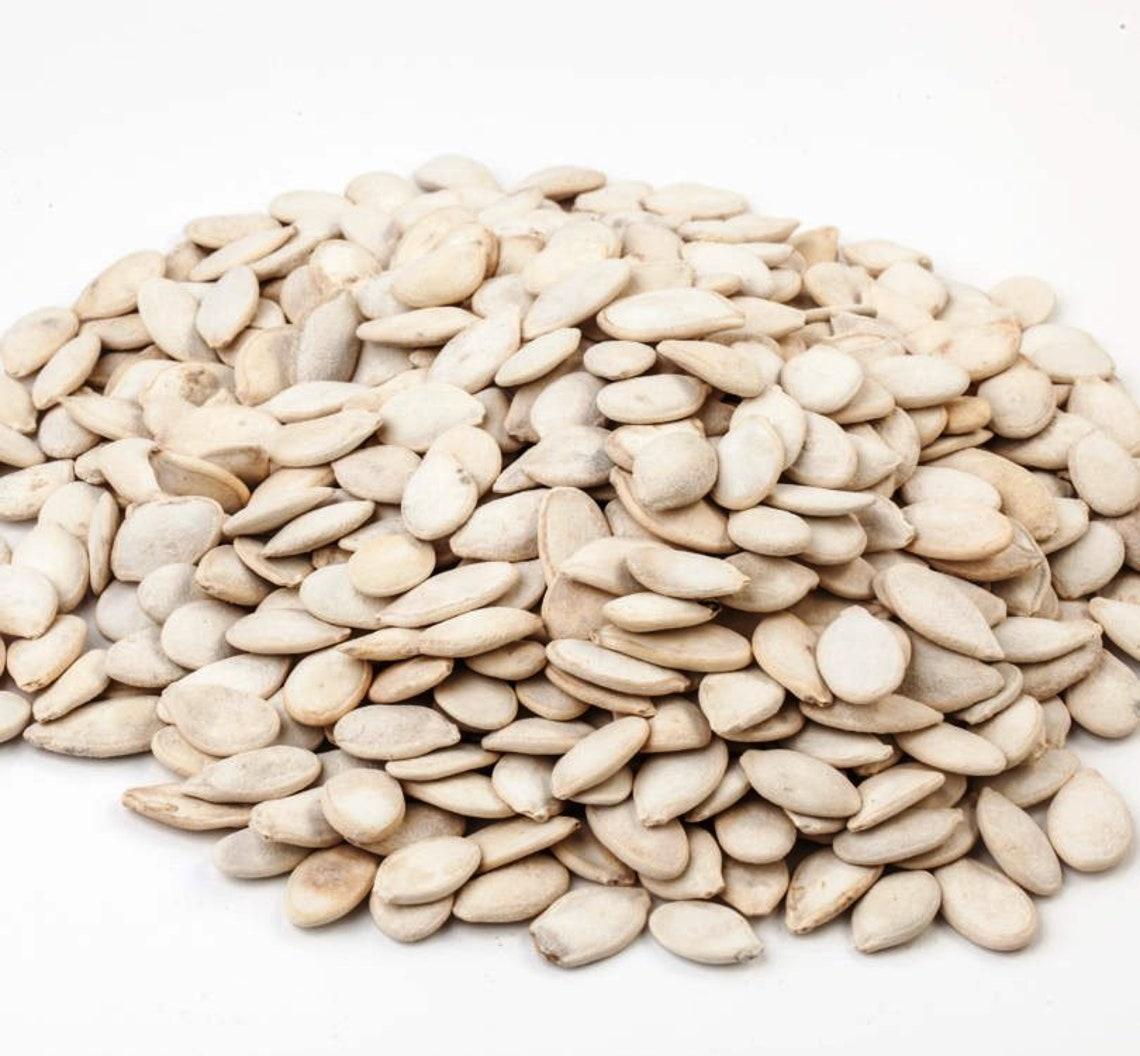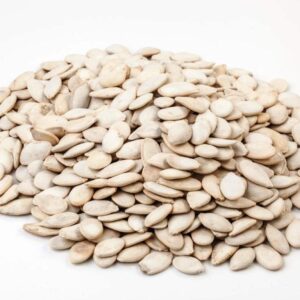

Description
Egusi is a term used in West African cuisine to refer to the seeds of certain plants that are rich in oil and protein, particularly the seeds of the melon plant (Citrullus lanatus), squash (Cucumeropsis mannii), and gourd species (Lagenaria siceraria). These seeds are ground into a powder and used in cooking to thicken and flavor dishes. Egusi is especially popular in Nigeria, Ghana, and other West African countries.
Botanical Description
- Common Plants: Egusi seeds are typically harvested from melon, squash, and gourd plants.
- Family: Cucurbitaceae
- Plant Description:
- Melon (Citrullus lanatus): A sprawling vine with large leaves and yellow flowers, producing large fruits similar to watermelons.
- Squash (Cucumeropsis mannii): A vine with hairy stems and leaves, bearing smaller, elongated fruits.
- Gourd (Lagenaria siceraria): A climbing plant with large leaves and white flowers, producing hard-shelled fruits.
Physical Characteristics of Egusi Seeds
- Size and Shape: Small, flat, oval seeds, about 10-15 mm long.
- Color: Pale cream to yellow when dried.
- Texture: Smooth and hard exterior, with a soft, oily interior when ground.
- Aroma: Mild, nutty aroma when ground.
- Flavor: Rich, nutty, and slightly sweet.
Nutritional Profile (per 100 grams)
- Calories: Approximately 593 kcal
- Carbohydrates: Around 10 grams
- Protein: About 30 grams
- Fat: Roughly 47 grams, predominantly healthy fats
- Fiber: Approximately 2 grams
- Vitamins and Minerals: Rich in magnesium, potassium, calcium, iron, and vitamins A, B1 (thiamine), and B2 (riboflavin).
Health Benefits
- Protein Source: High in protein, making it a valuable protein source for vegetarians and those seeking plant-based proteins.
- Healthy Fats: Contains healthy fats that are beneficial for heart health.
- Mineral-Rich: Provides essential minerals like magnesium and calcium, important for bone health and metabolic functions.
- Antioxidant Properties: Contains antioxidants that help protect cells from damage.
- Digestive Health: The fiber content aids in digestion and promotes a healthy gut.
Culinary Uses
- Soups and Stews: A key ingredient in traditional West African soups and stews, such as egusi soup, a thick and hearty dish often made with vegetables, meat, and fish.
- Thickener: Used to thicken sauces and soups due to its high oil and protein content.
- Flavor Enhancer: Adds a nutty flavor to dishes, complementing other ingredients.
- Snacks: Roasted egusi seeds can be eaten as a snack.
- Baking: Sometimes used in baking, adding a unique flavor and texture to bread and pastries.
Traditional Recipes
- Egusi Soup: Made with ground egusi seeds, leafy greens (such as spinach or bitter leaf), meat (such as goat, beef, or chicken), fish, and various seasonings.
- Egusi Pudding: A steamed dish made with ground egusi seeds, often mixed with vegetables and spices.
Preparation
- Harvesting: Seeds are extracted from the mature fruits of the melon, squash, or gourd plants.
- Cleaning: Seeds are cleaned to remove any pulp and debris.
- Drying: Cleaned seeds are dried in the sun or mechanically to reduce moisture content.
- Roasting (Optional): Seeds can be roasted to enhance their nutty flavor.
- Grinding: Dried seeds are ground into a fine powder or paste, ready for culinary use.
Storage
- Conditions: Store in an airtight container in a cool, dry place to prevent rancidity.
- Shelf Life: Ground egusi can last for several months if stored properly. Whole seeds have a longer shelf life.
Cultural and Historical Significance
- Culinary Staple: An essential ingredient in many West African households, particularly in Nigeria, Ghana, and Cameroon.
- Traditional Celebrations: Often used in special dishes prepared for celebrations and festivals.
Safety and Precautions
- Allergies: Individuals with seed or nut allergies should consume egusi with caution.
- Storage: Proper storage is crucial to prevent the seeds from becoming rancid.
Summary
Egusi is a highly nutritious and versatile ingredient used extensively in West African cuisine. Its rich, nutty flavor and thickening properties make it a key component of many traditional dishes, particularly soups and stews. Beyond its culinary uses, egusi is valued for its health benefits, offering a substantial source of protein, healthy fats, and essential minerals. Proper storage ensures its longevity, making it a staple in many kitchen.



Reviews
There are no reviews yet.